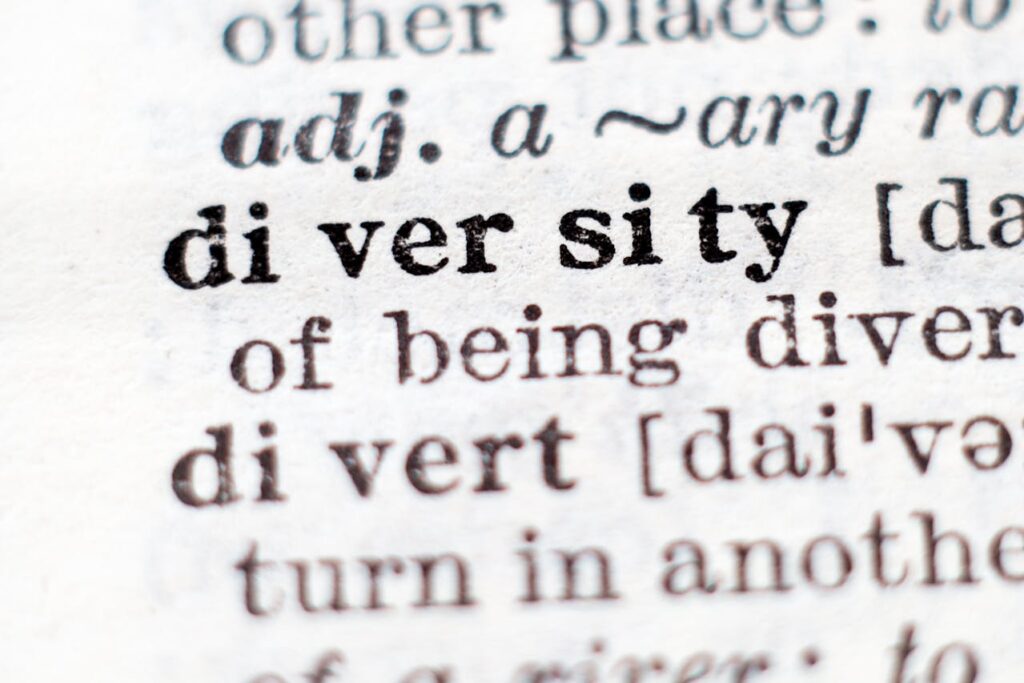Diversity. Equity. Inclusion.
It’s hard to accept that such lofty principles, known as DEI, are part of some sinister plot to poison minds and destroy this country.
After all, America’s prosperity, along with its status as a beacon of civil liberties, is rooted in its blend of peoples from across the world. Yet, the reality of our “melting pot” is that it also includes generations of conflicts between groups seeking to blend in.

That is why it is disappointing, if not surprising, that Kentucky has joined half of the states in portraying efforts to overcome such conflicts as some sort of spreading toxin. Bills aimed at shutting down DEI training in schools and colleges dovetail with movements to ban books, erase racial history, reject LGBTQ citizens, and embrace a conspiracy theory about a plan to replace the white majority.
There is no way that Kentucky – an overwhelmingly white and Republican state – is in danger of being somehow overtaken by supporters of diversity efforts. Yet while demanding free-speech rights, some lawmakers demonize mere discussions contrary to conservative thought.
Sen. Philip Wheeler, R-Pikeville told a reporter that college-level “vitriol” divides people more than unites them: “I don’t think someone who is white should be taught they are a bad person, any more than an African American should be taught they are oppressed.”
Some efforts to elevate marginalized groups could cast blame on some for the actions of past generations. That’s unfair and unproductive. But so is the suggestion from a recent Senate committee hearing that someone hostile to students’ gender identities should be hired as a peer counselor.
Our society continues to change with increasing numbers of minority and mixed-race people; more openly LGBTQ citizens; more progressives, even among young Republicans; and fewer Christian churchgoers, even among conservatives. Taking time to understand the impact of the transformation is a better strategy than trying to erase, ignore or penalize it.
Yet Senate Bill 6, which the Senate recently approved 26-7, would allow the attorney general to sue colleges and universities on allegations they promoted “discriminatory concepts.” Senate Bill 93 would eliminate DEI programs in K-12 public and charter schools. House Bill 9 would dismantle and defund all DEI offices in public colleges and universities and eliminate race-based scholarships.
This is the case despite a recent survey by the Foundation for a Healthy Kentucky showing 71% of registered voters agreed that businesses and institutions should manage their DEI programs without government interference.
The bills are inconsistent with state-outlined goals to increase diversity and encourage academic rigor, said Eli Capilouto, president of the University of Kentucky, which is 73% white.
“Freedom to explore and ask questions of anyone or anything — without fear of reprisal — is essential,” he said in a memo to the university. “Across this campus, staff and faculty work to support students of color and from underrepresented backgrounds. We should value and support that work, not diminish it.”
And during a Black History Month celebration, Gov. Andy Beshear reminded that DEI programs also focus on veterans and military spouses, people impacted by generations of poverty and those from rural areas. “Diversity is an asset,” he said, when trying to attract companies to the state.
The irony of this debate is that DEI efforts are rooted in affirmative-action policies championed by Republican President Richard Nixon in the early 1970s. Decades of court rulings eroded support for setting specific quotas for minority hiring and contracting. But interest in diversity spiked after the 2020 murder of George Floyd by police in Minneapolis. Widespread, multi-racial protests pushed for more proactive efforts on equity and inclusion.
When the U.S. Supreme Court last year ruled against affirmative action in college admissions, DEI became an easy target. Even some supporters complained that the training was not adding diversity among top corporate officials.
However, a survey of 400 corporations recently published in Forbes revealed positive impacts: “Companies that prioritize DEI tend to have happier and more innovative employees, boast higher retention rates and are better at problem-solving.”
So, DEI supporters say the training helps bring people together, while critics insist it pulls people apart. The main difference between those perspectives is the fear of losing control. As Rep. Karen Berg, D-Louisville, said: “I am sorry people in our society feel so intimidated by other groups that they literally feel they have to pass laws to protect themselves.”
That has often been the best option for the underrepresented. The major difference in this case is that those with the power now fervently insist they are actually the disadvantaged. They are supposedly under siege — all the while turning the screws to further diminish others.
To prosper, Kentucky needs to benefit from varied knowledge and experiences; to recognize that we don’t all start from the same place; and to allow access to opportunities for those too-often overlooked.
As Nixon said during another time of national turmoil: “We cannot learn from one another until we stop shouting at one another — until we speak quietly enough so that our words can be heard as well as our voices.”
This article is republished under a Creative Commons license from Kentucky Lantern, which is part of States Newsroom, a network of news bureaus supported by grants and a coalition of donors as a 501c(3) public charity. Kentucky Lantern maintains editorial independence. Contact Editor Jamie Lucke for questions: info@kentuckylantern.com. Follow Kentucky Lantern on Facebook and Twitter.






